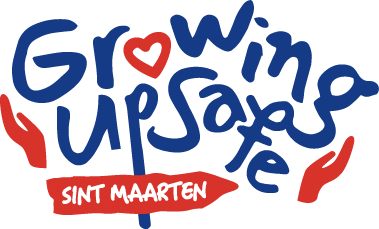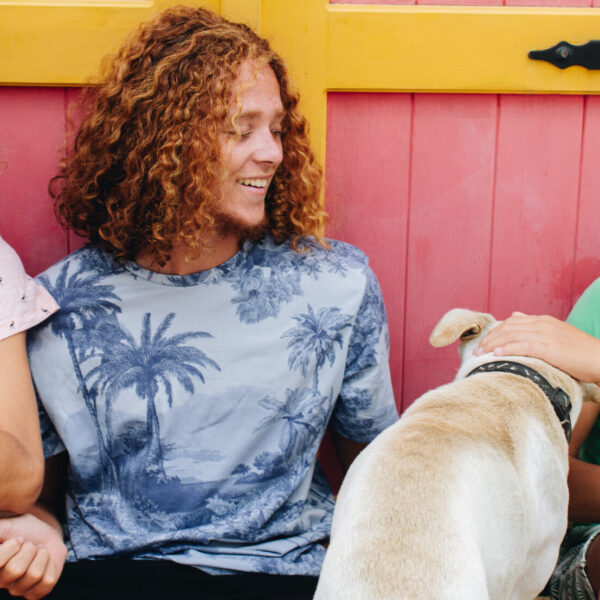The Positive Parenting Support Program is training child protection professionals in innovative parent engagement strategies – to be able to provide more accessible parenting classes for the public. Professionals, parents, and children gave input towards its development.
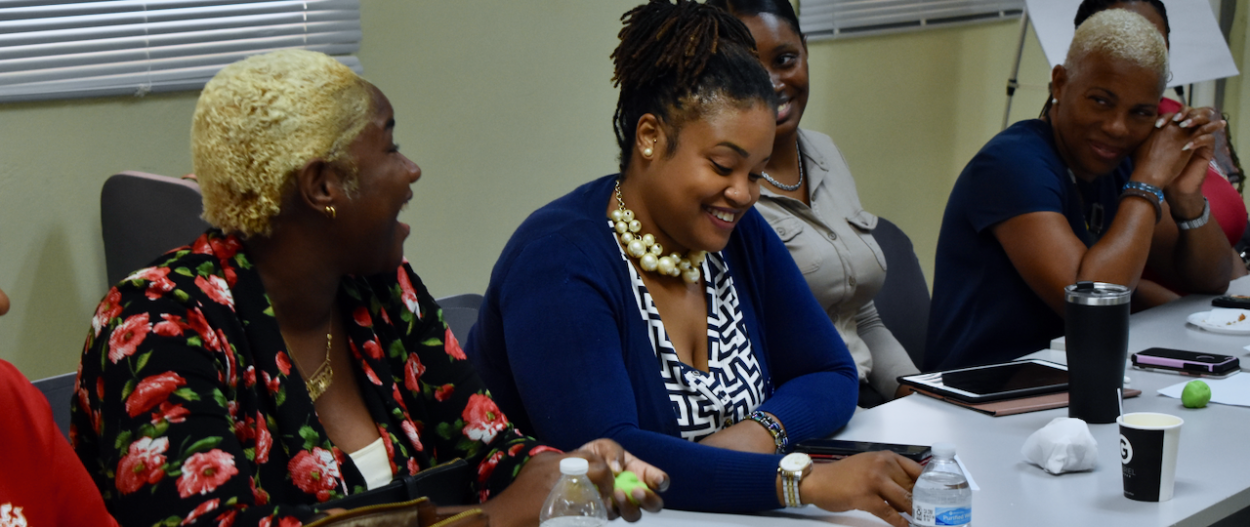
Supporting parents to protect children
Ceceile Minott and Linda Craigie-Brown are part of the large team of experts developing the Positive Parenting Support Program (PPSP). This is a new parenting program, tailor-made for Sint Maarten. The parenting curriculum aims to support parents in building a more positive relationship with their children. Parents and children were consulted in the research phase of the development of the PPSP. Interestingly, both groups voiced many similar concerns about parenting.
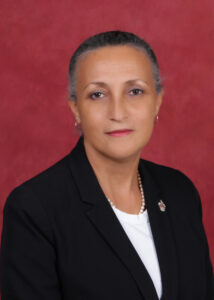
“Parents wanted a more open and trusting relationship with their family”
Ceceile Minott
They were concerned about not having sufficient activities for children and youth, not having access to information about parenting, and they wanted to have a more open and trusting relationship with their family. Ceceile: “In addition, finances remain a worry of families on Sint Maarten. Parents are unsure how to balance the high cost of living, work multiple jobs, and still have time for their children.”
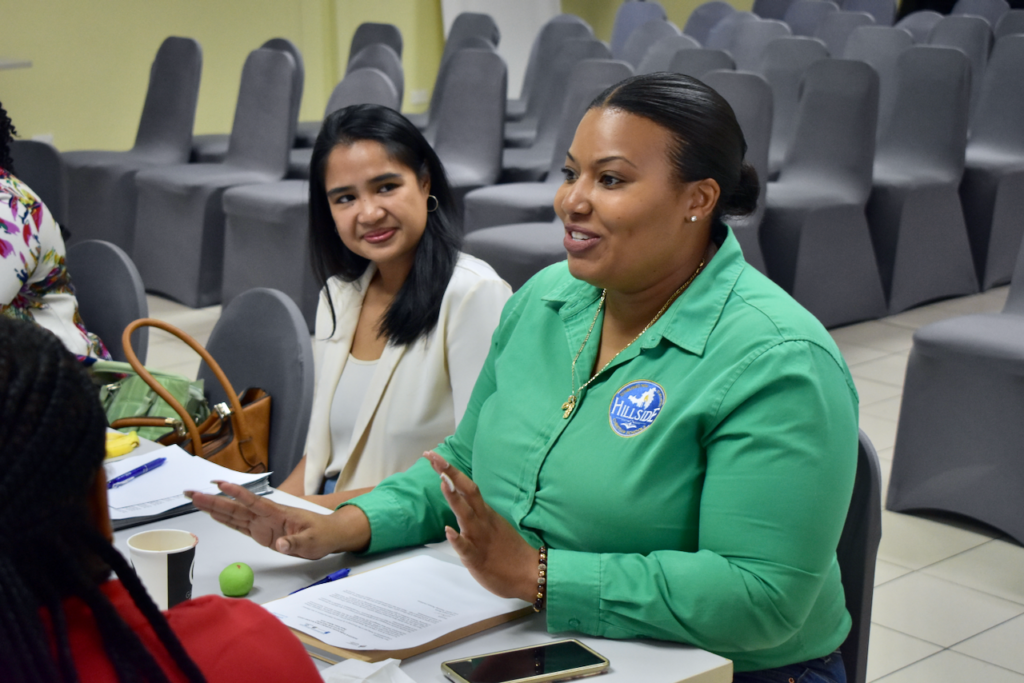
Kickstart training
Quality of time
The PPSP teaches parents that it is not about the quantity of time a parent spends with their children, but the quality. “A parent can be at home all day with their child but have made no effort to connect or support their child. On the other hand, a parent can also spend an hour with their child and actively build their relationship with them”, explains Linda. The classes will teach parents positive approaches to communicating, disciplining, and building a better connection with their children.
During the PPSP training, Linda touches on two definitions of positive parenting. First, a set of parenting behaviours to teach children to love, trust, explore and learn. Second, the continual relationship between a parent and child includes caring, teaching, leading, communicating, and providing for the needs of a child, consistently and unconditionally.
Positive parenting, or just parenting, has many different descriptions to embody the meaning and responsibilities of being a parent. But what it comes down to, according to the experts, is encouraging the parent to see and treat their children in a positive manner. “Words stick, hurt, describe and prescribe. If we tell a child that they are worthless and good for nothing – this is what they will believe and act accordingly.”
Follow updates about the PPSP
Positive Parenting Support Program
Fifty-six professionals, such as teachers, social workers, counsellors, etc., are being trained to become facilitators of a new Positive Parenting Support Program (PPSP). The PPSP facilitators will provide guided parenting classes to the public. The parenting classes will help parents and caregivers to increase their knowledge and understanding of positive parenting practices.
The program has been a long-term goal and initiative spearheaded by the Department of Youth in the Ministry of Education, Culture, Youth and Sport (MECYS) and is being implemented with technical support from UNICEF the Netherlands. The curriculum for the PPSP was developed after extensive research and data collected from dozens of focus group discussions and stakeholder interviews. The teams tasked with the development of the curriculum include the University of the West Indies Open Campus, through the Caribbean Child Development Centre (CCDC), in partnership with Parenting Partners Caribbean (PPC).
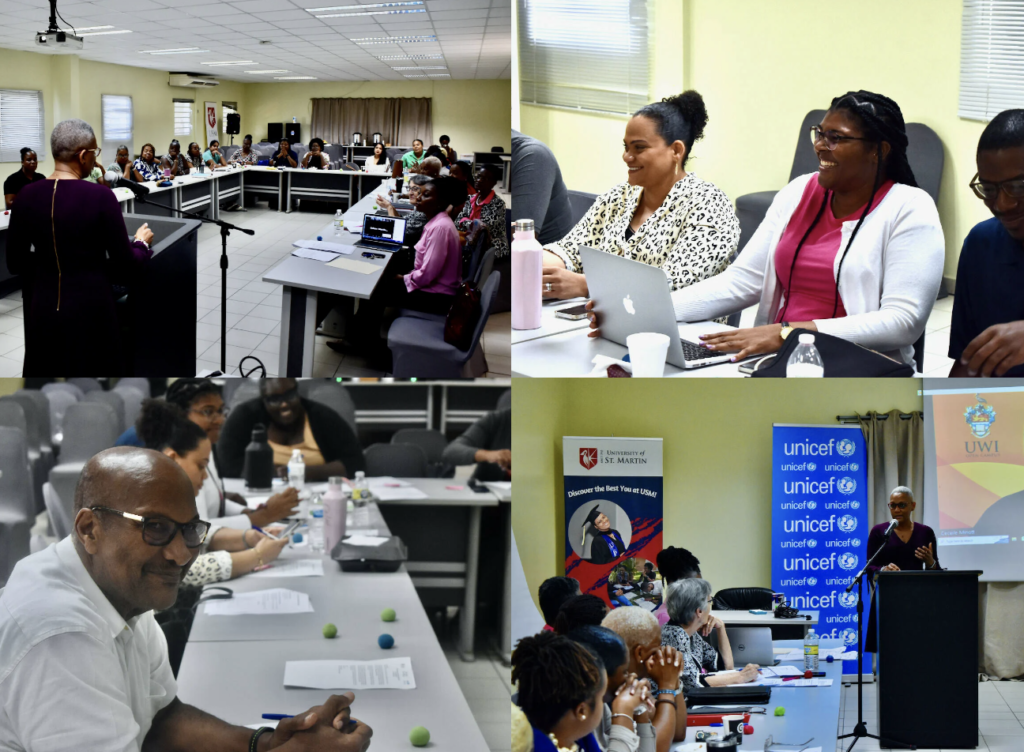
Master Trainers
Twenty PPSP Facilitators will be selected to continue their training and become ‘master trainers’. Master trainers, in turn, can train others to become PPSP Facilitators, ensuring the continuity and accessibility of parenting education classes on Sint Maarten. The PPSP is part of the Child Resilience and Protection Project (CRPP), financed by the Government of the Netherlands through the Sint Maarten Trust Fund, and administered by the World Bank.
Follow updates about the PPSP
www.facebook.com/departmentofyouthsxmand
www.facebook.com/unicefsxm
Parenting Classes
Providing more accessible parenting classes also plays a large role in ensuring that children are protected. “Every child goes through different stages from birth till eighteen years old. At every stage, a child can face different threats and needs different protective measures that parents should be aware of,” explains Ceceile. For example, a two-year-old will want to explore and does not recognise certain dangers. They might fall, cut or burn themselves, so parents must know how to assess hazards in their home to prevent accidents.
“Various agencies must work together to encourage and support turnout, such as providing time off work for parents to attend”
On the other hand, teenagers can be tempted to engage in risky behaviours as they are figuring out their identities and relationships. In this stage, they must have an honest and open relationship with their parents. This way, the parent will be better aware of their online presence, who their friends are, and possible negative influences.
Currently, professionals who work with children and families are being trained as facilitators to provide parenting classes to the public in 2023. Ensuring that these classes are accessible to the public and especially vulnerable groups is a community effort, conclude Ceceile and Linda. “Just because there are parenting classes available doesn’t mean parents will attend. Various agencies must work together to encourage and support turnout, such as providing time off work for parents to attend. Parenting advice can also be provided through community outreach and professionals who work with families. If they don’t come to us – we must go to them!”
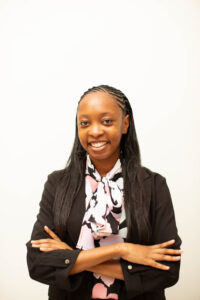
“The PPSP teaches us innovative parent engagement strategies”
Tjashana Honore
Social worker at Community Development, Family and Humanitarian Affairs (CDFHA)
“Once I have completed the Positive Parenting Support (PPSP) training, I will facilitate parenting classes in small groups. I think that the PPSP is a special and much-needed initiative in our diverse communities. The parenting classes will support parents by providing a safe space to connect with other parents and build their skills as caregivers. As a social worker at the Women’s Desk, I also guide many parents. My work in past years has taken me to some of our most vulnerable communities. This has been an eye-opening experience. Due to the stigma and fear surrounding poverty and violence, many Sint Maarten residents are unaware of the hardships endured by the population.”
Family Challenges
“Most of my clients struggle financially, leading to an unbalanced and stressful life. I also see a lot of substance abuse destroying families. These challenges do not make it easier for parents to find time to connect with their children; in addition, corporal punishment is still often used. When parents seek our assistance, they are coping with a great deal – so much, in fact, that advice or a referral may not be sufficient to alter their attitude or behaviour. The PPSP teaches us innovative parent engagement strategies. The most impactful: allowing them to hear from and discuss with other parents who are going through similar challenges.
Attending the PPSP Facilitator Training has refreshed and built on my knowledge. It’s a bonus that I can connect with other professionals in the same field. Some topics we have touched on so far include growth and development, positive parenting skills and child and parent resilience. The training session on resiliency resonated with me. I was reminded that although people go through difficult moments, we all can bounce back. Finding the strength to get back on your feet is never easy but remember, this will pass.”
